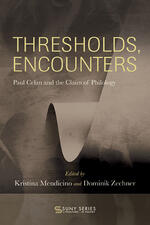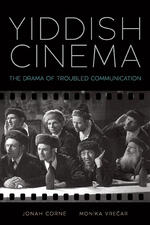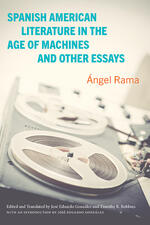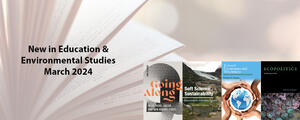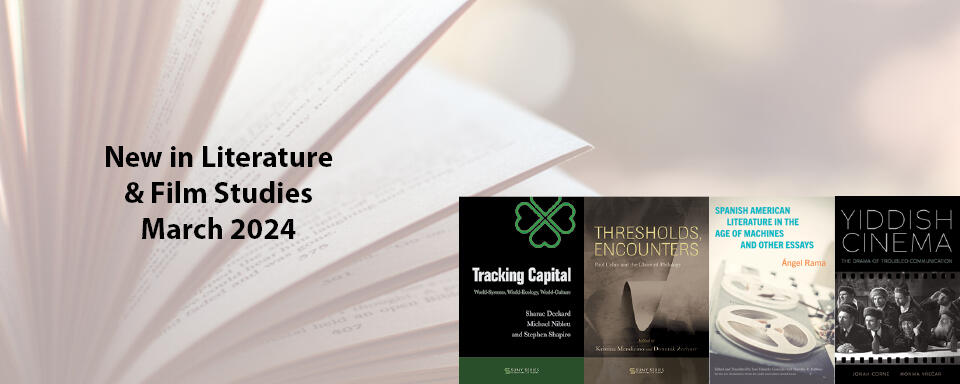
New This Month in Literature and Film Studies
Our series, Literature . . . in Theory questions what constitutes literature, theory, and the world. This series is interdisciplinary and comparative; its books provide the necessary conceptual tools for explaining what literature is and does and how it relates to other discourses or disciplines. Available this month, Tracking Capital: World-Systems, World-Ecology, World-Culture, by Sharae Deckard, Michael Niblett, and Stephen Shapiro, offers new ways to read the relationship between culture, ecology, and capitalism.
"An impressive and important contribution to ongoing, heated debates about 'World Literature.' In bringing together and freshly illustrating world-systems, world-ecology, and world-culture approaches, the volume serves as a handy introduction to these methods, while offering the experienced reader much to reckon with." — Crystal Bartolovich, coauthor (with Jane Hillman and Jean E. Howard) of Marx and Freud, Great Shakespeareans: Volume X
Thresholds, Encounters: Paul Celan and the Claim of Philology, edited by Kristina Mendicino & Dominik Zechner, is now available in paperback, and explores the various ways in which poetic and philosophical writing meet in texts by, and on, Paul Celan.
"…this book stakes its 'claim of philology' by estranging preexisting critical positions on Celan and fathoming his multivocal idioms as if for the first time." — Critical Inquiry
"Beautiful and very open in its structure, Thresholds, Encounters is an invitation to dialogue." — Ilit Ferber, author of Language Pangs: On Pain and the Origin of Language
"The volume demonstrates an exemplary fidelity to a practice of philology that is attentive to language's capacity for ungrounding its propositions. It would not be an exaggeration to describe these performances of reading as tours de force." — Jason Groves, author of The Geological Unconscious: German Literature and the Mineral Imaginary
Also new in paperback is Spanish American Literature in the Age of Machines and Other Essays, by Ángel Rama, edited and translated by José Eduardo González & Timothy R. Robbins, and with an Introduction by José Eduardo González. Ángel Rama was among the most prominent Latin American literary and cultural critics of the twentieth century. This volume brings together and makes available in English for the first time some of Ángel Rama’s most important essays.
"This volume marks a major contribution to the materialist critique of literary history. Taking a transnational approach to Latin American literature from the nineteenth century to 'the Boom' of the 1960s and 70s, when interest in writing from the region exploded, Rama underscores the indispensable role of literary systems for grasping the complexity and contradictions of cultural phenomena." — Gorica Majstorovic, author of Global South Modernities: Modernist Literature and the Avant-Garde in Latin America
"Spanish American Literature in the Age of Machines and Other Essays brings together a superb selection of classic and lesser-known essays. It invites us to read Rama's renowned books, The Lettered City and Writing across Cultures—his primary works previously translated into English—within the totality of his oeuvre and reconsider the multiple relationships his writing draws among critical theory, sociology of culture, anthropology, and print culture. José Eduardo González's excellent introduction offers a valuable guide for these endeavors and a solid overview of scholarship on Rama. This book will appeal to a broad array of scholars interested in Latin American literary and cultural history, world literature, and the subtle relation between society and literature.” — Javier García-Liendo, author of El Intelectual y la Cultura de Masas: Argumentos Latinoamericanos en Torno a Ángel Rama y José María Arguedas
Our Horizons of Cinema series aims to publish accessible, critical, and appealing studies of the history, production, cultural reception, and social meaning of film, considered either retrospectively or with a view to future developments (or both).
Yiddish Cinema: The Drama of Troubled Communication, by Jonah Corne & Monika Vrečar, is new in paperback, and offers a bold new reading of Yiddish cinema by exploring the early diasporic cinema's fascination with media and communication. Films discussed include The Wandering Jew (1933), The Dybbuk (1937), Where is My Child? (1937), A Little Letter to Mother (1938), Kol Nidre (1939), Motel the Operator (1939), Tevye (1939), The Living Orphan (1939), and Long Is the Road (1948).
Happy reading and come back to see what's new next month!
